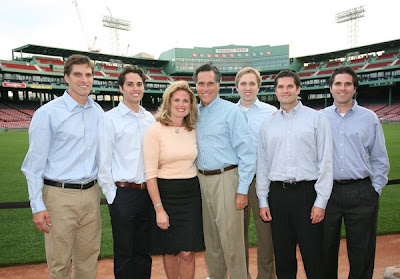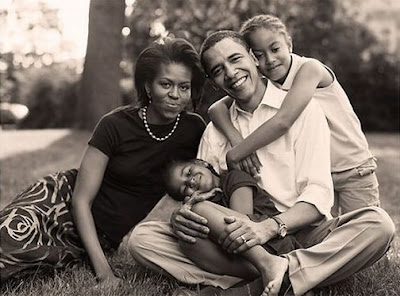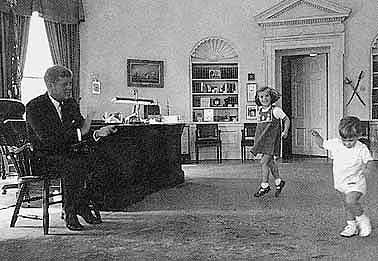2008/02/29
Out of Touch
This is months, *months* too late to even begin to bring up and talk about but I really don't give a shit.
"Umbrella." Yeah, that song. You know it, know doubt. Even if you somehow can't associate the name of the song with its singer Rihanna, you've probably heard it several times on the radio, in a club, on the telly, usually without knowing its name.
Here's a link to the video to refresh your memory:
This column is not about that song however.
It's about the state of music overall. This particular track (dats the industee lingo y'all) was a huge megahit with people all over the world. It was Rihanna's breakthrough after a string of smaller hit singles that generally ripped off from Soft Cell and New Order, among other acts. Umbrella got Grammy nominations, almost universal critical applause (it was Entertainment Weekly's track of the year, and #3 on RollingStone's list) and it generated extraordinary buzz in an era when, frankly, it's virtually impossible to establish common cultural touchstones.
But I'm getting ahead of myself.
The way I see it, North American culture is deeply fractured. Everyone is divided into neat, marketable categories that makes it easy for giant media conglomerates to sell things to. Subcultures and genres define so much of who you are, what you do and what others think of you that it seems almost impossible to not be lumped into one of these categories.
Let me illustrate this for you. Imagine your typical city bus. It's around 3:30 in the afternoon, school's out, the bus is loaded with kids going home or to their friends' houses. All good so far? Look closer.
Here on this bus, you got emo kids listening to Red Jumpsuit Apparatus and Saves The Day who have absolutely no connection culturally with the new rave kids sitting next to them who are kicking "D.A.N.C.E." by Justice. Neither of them give two f*cks about the long-haired stoner digging "Sweet Leaf" by Black Sabbath, circa 1971. His slightly less metal-loving buddy, also a long-haired stoner is kicking it progressive and busting Alan Parsons Project.
In the back of the bus, you got the black kids listening to Jay-Z and T-Pain. In the front, you've got the tweens singing along in unison to Britney and Gwen. The one Muslim chick in the front stares blankly ahead, not listening to anything.
Nobody on the bus is listening to the Bruce Springsteen album that hit #1 on the Billboard charts. Nobody on the bus even knows who Bruce Springsteen is.
What's the point I'm trying to make with this overlong analogy? It's not that everyone is listening to different things. That's fine. I think it'd would be creepy and fascist to hope that all these kids with all their different backgrounds would be listening to the same music.
My problem is that all those bands and songs that I listed are not just different genres; for these kids, they may as well be different planets.
A kid who listens to rap has no clue about the sorts of things that go through the head a kid who listens to classic rock who has no relation or commonality with another kid who listens to indie rock.
It's a glaring fissure in the bedrock of what makes us in the West a society, rather than just a bunch of people who happen to be stuck in the same city. Back in the days, when an artist like Nirvana, or Michael Jackson or The Beatles released a new song, it was an event that transcended age, preference and cultural boundaries. People of all backgrounds and demographics gathered around television sets to watch them. Kids talked about them to each other at school and joined the fan club. Co-workers mentioned them at lunch and everyone would nod. They were known. It was common knowledge. It was just, y'know, it.
Now, we have a hundred radio stations, a thousand satellite channels, and trillions of websites, and no-one knows what anyone else is talking about. You have a nation of cliques and circles. Suddenly, everything is an in-joke. Patterns of speech and vocabulary are limited to whatever you and your six other friends talk like. When one has to, usually under work or school-related circumsutances, actually try and communicate with others, what happens is a total breakdown. The 42 year-old white supervisor or the 62 year-old Pakistani professor is not going to have one clue what the 19 year-old punk or hip-hopper is saying when they tries to talk to them. What ends up happening is either, misinterpretation, offense taken from one of the two parties or a sort of broken, pared-down version of language. The kind you use when you're talking to someone from Japan or Sudan.
This goes beyond just communicating. Slang and common reference points are esoteric enough as it is. A few awkward conversations are tolerable in our land of multiculturalism.
The problem is thus.
Culture ends up having no centre, no meeting point, no town square where people can come together. Without this necessary social utility, people have no place to discuss, to interact nor to share in the experience and reality of being neighbours, schoolmates, citizens, humans.
And I'll take this concern one step further and call it what it is.
Cultural segregation.
It's cultural segregation that is going to have effects and repercussions that we as a culture will face in the future. You're talking about trying to bring people together and trying to make them connect when they have absolutely nothing to even begin to talk about. You have relationships between people from the same cultural category and no exposure or interaction to other ways of living.
Understand the offense I take from this situation is because there is in fact, a reason that this phenomenon has occurred. The populace is being deliberately carved up and classified for one reason, and one reason only: to be marketed to.
It's easier to tailor your ads hocking shoes and accessories to a specific stereotypical category than it is to a broad demographic that is educated, informed and technologically savvy. You will buy more from ads with people who look like you, talk like you and with bands that you listen to.
Furthermore, you end up with heavily restricted social mobility. Sorry to get all Marx on you but, the poor end up staying poor because that's all they know. The rich stay rich, because they don't care about the poor. The middle doesn't know what's what, except whatever their telly says it is.
Pretty much, from the age of 10, you're being pressured into making a choice. Indie? Arty? Freak? Geek? Emo? Punk? Stoner? Jock? Prep? Hip-hopper? F.O.B.? Take your pick. They're all the same as the other ones.
All it's going to change is whether you're going to buy the pair of Dickies work pants or the environmentaly-friendly organic bamboo skirt...all at the same mall.
The illusion of choice.
Well, that and your friends, your school, your career paths, cultural preferences and a whole host of other things are all decided by a simple thing like what you choose to associate with. Or what you listen to.
Pointe finale: Fuck Umbrella.
Rihanna and Jay-z should both die.
=//Turnquest
2008/02/25
American Anti-Intellectualism
Original Link:
http://www.cbc.ca/news/viewpoint/vp_mallick/20080225.html
HEATHER MALLICK
The most depressing book since Bambi
America's sad state of
knowledge
February 25, 2008
On Sept. 11, 2001, New York author and historian Susan Jacoby headed
home, not unreasonably stopping at a bar first, where she overheard a
conversation between two men in suits:
"It's just like Pearl Harbor," one of the men said.
"What's Pearl
Harbor?" the other one asked.
"That was when the Vietnamese dropped bombs in
a harbour, and it started the Vietnam War," the first man replied.
That was when Jacoby decided to write her stunningly sad new book, The
Age of American Unreason, on the anti-intellectualism of her nation. It's the
type of worthy, timely book that consolidates information rather than uncovering
it, and stunning only in the sense that it is asteroid-like when it hits the
reader. Just when Americans, led by the young, were getting their courage back
and demanding a return to sanity — with the rest of us cheering them on — Jacoby
delivers a harsh verdict.
Here was I, expecting and rejoicing in great things from a stricken
country — President Obama, money wasted on Iraq to be spent on education in
slums and Arkansas, and maybe a new novel from Jonathan Franzen. The Age of
American Unreason obliterates all hope and leaves a steaming black pit. It's the
most depressing book since Bambi, and I was six when I read that. Bambi's mother
isn't coming back and neither is the American drive towards rationalism,
self-improvement, respect for measurable scientific truth and ability to
understand sentences with clauses.
Widespread uneducation
Anti-intellectualism has always existed but it didn't always run the
American show, Jacoby says. Jimmy and Rosalynn Carter weren't embarrassed to
take speed-reading classes in the White House, part of the same grand tradition
of self-taught intellect that fuelled the almost unschooled Abraham Lincoln into
the building. But the era of the autodidact is dead. The accepted stance now is
to assert that one cannot be improved upon.
Here's the puzzle Jacoby presents: it isn't that the poor are shut out
of an education, it's that everyone is. Learning is aggressively undervalued.
Evolution is officially considered a theory, Bush aides refer sneeringly to the
"reality-based community," and, as Bill Moyers put it, "the delusional is no
longer marginal."
Adults are not expected to have a common literacy or prior body of
knowledge, and this one has pained me personally for years. When I write a
column, should I have to identify all the proper names of intellectuals I
mention? Can I assume that readers are already familiar with John Kenneth
Galbraith or Donald Rumsfeld? I say yes, Canadian newspaper editors gently say
no, American editors angrily say no, and — here's the glory of writing online —
my CBC.ca editor says yes, and anyway, readers curious about Moyers will simply Google his name and return to
this page.
Mainstream editors assume that readers don't know who anyone is. And
this is Jacoby's point. It's not that her fellow Americans know nothing — that
would be fixable in a better world — but that they are expected to know nothing.
This extends into the Ivy League, media, academia and science.
Undisciplined analysis, in many disciplines
The New York Times recently ran an article on young immigrant students drawing classroom lessons
from reading The Great Gatsby. They yearned for Gatsby's wealth; they saw him as
a glorious "striver." But no one, not the sweet-natured teacher, the students or
the reporter seemed to grasp that Gatsby's green light was a delusion, that the
novel ends in tragedy and that Gatsby was a bootlegger, a 1920s version of a
drug dealer. The article was written with the literalism and gassy sentimental
wonder that is the hallmark of a Times feature. I am always awed by journalists'
ability to see glamour where there is none. Wiser readers wrote to complain
about the misreading, but they sounded … lonely.
Lawrence Summers of Harvard had no evidence for saying women were bad
at science; he simply felt it to be true. News reports on NBC are short because
viewers are assumed to have a child's attention span. It is scientists hungry
for research grants who are responsible for the laughable "health" stories that
clog our landscape. Take, for example, "post-abortion syndrome," or the recent
study that claimed pot smokers were more likely than cigarette smokers to get
lung cancer, based on chats with 10 smokers in Melbourne. It's junk science, but
people are innumerate, scientifically illiterate and credulous — three things
educated people are not supposed to be.
As for last week's headline, Female G-spot
can be detected, all I can say is "Yes, if you work at it," and if you're an
enthusiastic male Italian PhD with 20 women to be probed at leisure, you will
find it, but it's not science.
Decline of the middlebrow
Jacoby traces the historical paths of anti-intellectualism. She studies
the devastation caused by the U.S. system of locally controlled education, which
dooms the poor and rural; the way the South for centuries ran a blockade against
good schoolteachers; the primacy of religion; and, most tragically, the decline
of the middlebrow.
Middlebrow culture began with the early 19th century adult-education
lyceums, and continued with the postwar GI Bill that gave Second World War
soldiers a free education, as well as a 1950s attempt by the middle class to
improve themselves with such things as the Book-of-the-Month Club. But TV
destroyed middlebrow. And highbrow dumbed down, Jacoby says, thanks to timid
academics who allowed the core curriculum to drift into trendiness, killing off
the study of the Dead White Males and anything that could be called an agreed-on
central culture that all Americans should share. Now Americans, including the
president, live in a lowbrow world.
I cannot square this with evidence of America's geniuses — there are
plenty of them — but she would say that the exception proves the rule. And she's
no happier saying it than I am reading about it.
American unreason is why a white-collar New Yorker conflates the
Vietnam War with the Japanese attack on Pearl Harbor in 1941. What
half-remembered whispers of fact rustled in this man's mind? He regards history
as a series of generic anti-American explosions, but then, he probably never
took a high school history class. He is normal; Jacoby is the odd one out. In
the U.S. today, literate thoughtful people are regarded as freaks.
De Toqueville described all this in 1835 in Democracy in America. But
he was describing a nation in transition. Jacoby isn't. "It is possible that
nothing will help," she concludes. "The nation's memory and attention span may
already have sustained so much damage that they cannot be revived by the best
efforts of America's best minds."
=//Turnquest
2008/02/22
The Iraq Question

From the transcript of Thursday night's debate between Senators Clinton & Obama.
Analyze closely the difference between the two candidates' answers. I'll let you read first, then share my thoughts.
(APPLAUSE)
BROWN: All right. We're going to stay with this and stay on Iraq.
John King?
KING: I want to continue in this vein, and hone in on the very point you just made. Because one of you, unless this remarkable campaign here takes another wacky, unpredictable turn, is going to be running against a decorated war hero, who is going to say that you don't have the experience to be commander in chief.
And you have both said, it's not about that type of experience; it's about judgment.
You both had to make a judgment, a short time ago, in your job in the United States Senate, about whether to support the surge. And as that was going on, Senator Clinton, you had the commanding general in Iraq before you. And you said, "I think that the reports provide to us really require the willing suspension of disbelief" -- your words to General Petraeus.
KING: I want you to look at Iraq now and listen to those who say the security situation is better. Ideal, no, but better -- some say significantly, in recent days, even some steps toward a political reconciliation.
Is Iraq today better off than it was six months or a year ago because of the surge?
CLINTON: Well, John, I think you forget a very important premise of the surge. The rationale of the surge was to create the space and time for the Iraqi government to make the decisions that only it can make.
Now, there is no doubt, given the skill and the commitment of our young men and women in uniform that putting more of them in will give us a tactical advantage and will provide security in some places, and that has occurred.
CLINTON: But the fact is that the purpose of it has not been fulfilled. The Iraqi government has slowly inched toward making a few of the decisions in a less than complete way, but it hasn't taken advantage of the sacrifice and the losses of life and billions of dollars that have occurred since the surge began.
That is why I have said, upon taking office I would ask the secretary of defense and the Joint Chiefs of Staff and my security advisers to give me a plan so that I could begin withdrawing our troops within 60 days.
And I would begin that with...
(APPLAUSE)
... with a very clear message to the Iraqis that they no longer had a blank check, as they had been given by President Bush, that as we withdraw our troops, probably one to two brigades a month, they would have to step up and make these decisions.
CLINTON: I believe that is in the best interest of our military, which has been stretched thin.
Last night in Brownsville, you know, a woman grabbed my hand and said, "Please, my husband's there for the third time. Bring him home."
And I told her privately what I have said publicly many times -- I will bring him home because I do not think it is in the interest of America or of the Iraqis that we continue to be there. It is up to the Iraqis to decide the kind of future they will have.
(APPLAUSE)
BROWN: Senator Obama, in the same vein, you were also opposed to the surge from the beginning. Were you wrong?
OBAMA: Well, I think it is indisputable that we've seen violence reduced in Iraq. And that's a credit to our brave men and women in uniform.
In fact, you know, the 1st Cavalry, out of Fort Hood, played an enormous role in pushing back al Qaeda out of Baghdad.
(APPLAUSE)
OBAMA: And, you know, we honor their service.
But this is a tactical victory imposed upon a huge strategic blunder.
(LAUGHTER)
And I think that, when we're having a debate with John McCain, it is going to be much easier for the candidate who was opposed to the concept of invading Iraq in the first place to have a debate about the wisdom of that decision...
(APPLAUSE)
... than having to argue about the tactics subsequent to the decision.
(LAUGHTER)
Because, ultimately, that's what's at stake. Understand, not only have we been diverted from Afghanistan. We've been diverted from focusing on Latin America.
We contribute -- our entire foreign aid to Latin America is $2.7 billion, approximately what we spend in Iraq in a week.
OBAMA: And it is any surprise, then, that you've seen people like Hugo Chavez and countries like China move into the void, because we've been neglectful of that.
Iran is the single biggest strategic beneficiary of us having invaded Iraq, and that is something that I think John McCain has to come to terms with.
So that is a debate that I'm happy to have.
One last point I want to make on this, and that is, the incredible burden that has been placed on the American people, starting with military families, and the fact that we still are not doing right by our veterans, that we still don't honor their service, that there are still homeless veterans, that we still don't screen properly for post-traumatic stress disorder and make sure that they're getting mental services that they need, that we are still...
(APPLAUSE)
... having veterans in south Texas have to drive 250 miles to access a veterans hospital.
OBAMA: That's unacceptable. But we talked about the economy earlier, the fact that we're spending $12 billion every month in Iraq means that we can't engage in the kind of infrastructure improvements that are going to make us more competitive. It means that we can't deliver on the kinds of health care reforms that both Senator Clinton and I are looking for.
And that is also an argument that we have to have with John McCain because he has said that he is willing to have these troops over there for 100 years. The notion that we would sustain that kind of effort and neglect not only making us more secure here at home, more competitive here at home, allow our economy to sink. As John McCain says, he doesn't really understand the economy that well. It is clear from his embrace of George Bush's policies that he doesn't, and that's what I intend to change when I am president of the United States of America.
(APPLAUSE)
BROWN: All right. We've got to take another quick break. We've got a lot more ahead. Stay with us. We'll be right back.
Jesus H. Christ, that's the sort of answer I woulda given ostie. Where were these types of strong, incredibly intelligent, thoughtful answers back in March 2003, or February 2006? When the United States and the world needed someone to speak truthfully and forcefully against this war and with the sort of knowledge and reason required on the matter, there was no one.
Lemme break the two candidates answers' down, and no, I'm not going to try and hide my leanings. Mrs. Clinton responded to the question and turned it around to say that yes, the surge may have worked, but the war must still end. Admirable, succinct, correct. I agree ma'am.
Mr. Obama on the other hand, waves the entire idea of the surge and the war away with a swipe of the hand, and the line "a tactical victory imposed upon a huge strategic blunder." Amen, brother. To translate, he's saying "Fuck the surge, even if Iraq was miraculously fixed right here and now, look at what we lost. He mentions, importantly, that he's against the very concept of invading Iraq. There's no way on Earth this could ever be seen as a victory.
That is especially crucial, because, lemme assure you, rolling back W's preemptive strike doctrine has got to be the first step towards both curbing the now half-trillion dollar Pentagon war machine as well as ensuring a safer, less war-infected planet.
Obama goes on to strike important notes with Latinos about the pitiful aid budget to Latin America, to the distraction from other, much more strategically important conflicts like Afghanistan and the rise of China and of course, multilateralism as a whole.
And finally, yes, the burden on America itself. When you have a guy talking about post-traumatic stress disorder for troops returning home, homeless vets and military hospitals, you have before you someone who understands that war is fundamentally a human action. He shows his empathy and his understanding of the sort of costs and toll that war has on human beings, and if someone has that, he will consider military options much more carefully. This sort of empathy is a rare damned thing I tell you. Watch this movie called Thirteen Days if you want to see what I mean.
I don't see that kind of empathy from Clinton, who seems to still be in campaign-mode trying to get everyone to like her.
And finally, he brings it back home in a way that all Americans can understand. The war is another reason for this shitty economy. The more you spend on the war, the less on roads, hospitals, social programs, bread and butter. He understands the big picture of how a country is supposed to work, and how a massive blunder, to use his words, like Iraq can bring the United States consequences it never even imagined.
He's got my endorsement.
Let's see what the voters will say, come November 4th.
=//Turnquest
2008/02/20
Waiting in Vain
by Bob Marley
I don't wanna wait in vain for your love
I don't wanna wait in vain for your love
From the very first time I blessed my eyes on you, girl
My heart says, "Follow through."
But I know now that I'm way down on your line
But the waiting feel is fine
So don't treat me like a puppet on a string
'Cause I know how to do my thing
Don't talk to me as if you think I'm dumb
I wanna know when you're gonna come
See, I don't wanna wait in vain for your love
I don't wanna wait in vain for your love
I don't wanna wait in vain for your love
'Cause it's summer is here
I'm still waiting there
Winter is here and I'm still waiting there
Like I said,
It's been three years since I'm knocking on your door
And I still can knock some more
Ooh, girl, ooh, girl
Is it feasible, I wanna know now
For I to knock some more?
Ya see, in life I know there's lots of grief
But your love is my relief
Tears in my eyes burn
Tears in my eyes burn while I'm waiting
While I'm waiting for my turn.
See, I don't wanna wait in vain for your love
I don't wanna wait in vain for your love
I don't wanna wait in vain for your love
I don't wanna wait in vain for your love
I don't wanna wait in vain for your love
Oh, I don't wanna, I don't wanna
I don't wanna, I don't wanna
No, I don't wanna, I don't wanna
I don't wanna, I don't wanna
I don't wanna wait in vain.
It's your love that I'm waiting on
It's my love that you're running from.
(Repeat)
2008/02/19
Greater of Two Goods
Elections in the U.S. over the past few Presidential cycles have tended to boil down to picking the lesser of two evils. Which one of the old white guys is slightly less evil than the other? Which one is slightly less incompetent, or slightly less likely to be a total dud, or with whom do you disagree with less?
This cycle is different, obviously, and it's one of the reasons why media coverage and popular interest is hitting the sort of intensity that it has been. For the first time since anyone of my age can remember, we have a real choice in this election. And not only that, but we have several candidates who seem to have that magic combination of vision, policy, personality and electability which can bring the most cynical and alienated non-voter out to rallies and keep them glued to CNN for hours watching speeches while getting into arguments about Texan Latinos or superdelegate responsibilities. What follies God likes to play on us. 'Be careful of what you pray for', as the old saying goes: 'it might come true'.
Hillary Clinton has, since her election to the Senate in 2000, been trying to sow the seeds of inevitablitity and entitlement to the crown of President. Her political operation, financed by the DNC establishment, wealthy New York supporters and masterminded by many of the same people who engineered her husband's victories in 1992 and 1996, was mostly successful. A lot of mainstream media sources, political junkies and regular folk were sort of convinced, without really any hard evidence, that she was the right man, er, woman for the job. It was all set up, Clinton in '08. Even though she herself was either in full denial or "won't deny or confirm" mode until her official announcement, somehow, the vast centre-left-wing conspiracy had worked its spell on Americans.
Or at least, it did, until Iowa.
Upstart, inspirational, charismatic, cult-leader, whatever you wish to call him, Barack Obama, the freakin' media magnet of our time came out and clobbered Hillary's dreams and plans like Godzilla stomped Tokyo. The surefire predetermined landslide nomination was anything but and at this moment, we are in the midst of what the old-fashioned pundits like to call "a horse race."
However, it's important to understand that despite what some right-wing diehards and indeed, some MSM reporters like to believe, this is not a war. The Obama-Clinton race is merely that, a race. It doesn't mean that Clinton supporters hate Obama, or vice versa, or that one side would not vote for the other should their candidate lose. Surveys conducted by CNN/Opinion Research last week show that "Seventy-nine percent [of Texan Democrats] say they would be satisfied if Clinton were the nominee; an equal number feel the same way about Obama." Meaning, that, the whole thing doesn't matter and that 8 out of 10 Democrats won't be burning effigies and declaring "Hail to the Thief" if the other person wins the nomination.
This race really is a choice between the greater of two goods. It's a fantastic decision to make. Sort of like "Do I want ice cream or brownies for dessert?" (Ok maybe that's got some racial subtext...) How about "Should I choose the Ferrari or the Lambo? The Benz or the Beamer? The 50 inch Plasma or the 50 inch LCD?" You catch my drift. It's the greater of two goods, and the important thing to note is that either way, America and consequently the world will better off from 2009-2013.
Keep this paradigm in mind while being absorbed into the media maelstrom over the ten months until November 7, 2008. Whether your man (or woman) gets the nod or not, be thankful for the wonder of democracy that Americans have and so many millions don't.. And also for the options we all wanted in '04, 2000, '96...
=//Turnquest
2008/02/14
Hillary Joke
Obama is just creaming Hillary. You know, all these primaries, you know. And Hillary says it’s not fair, because they’re being held in February, and February is Black History Month. And unfortunately for Hillary, there’s no White Bitch Month.
=//Turnquest
2008/02/06
Family Portraits
2008/02/04
The Uncool War
Is the war simply not hip anymore? I ask this question in all seriousness. I want to know. Is the idea that thousands of women and men, Canadian and American, are still overseas and engaged in active combat just not very interesting? Did we win or something?
The fact that one can watch virtually a nightly news broadcast on any network these days without hearing a soundbyte about Iraq (and often Afghanistan too) is a disgrace. It's like the viewers, and by extension the reporters, just decided one day that any war news was boring. "Let's go cover Heath Ledger instead," said the mainstream media.
Hell, even Al-Jazeera doesn't have a headlining story on Iraq on its website.
The U.S. Election (still ten months away people) takes up so much talk that no-one even seems to remember why it's so important. It's the War, stupid. Neither Obama nor Clinton has yet to offer anything concrete on how exactly they intend to "bring the troops home." McCain and Romney on the other hand, can't wait to send more soldiers over to Iraq, and probably Iran, Syria and Pakistan too.
It's not like the war is over. Last year was the bloodiest year yet for U.S. troops in Afghanistan. Add to that the nearly two thousand civilians killed in combat and ten times that figure over in Iraq. Throw in nine hundred U.S. troops and thirty Canadian troops and you've got anything but "mission accomplished". That's just 2007. We've been at it for five years in Iraq and seven in Afghanistan. My little cousin just turned three. We've got an entire generation coming of age that doesn't know what the world looks like without Iraqi insurgents and Taliban militia. That offends me.
The fickle protest community, with its earnest sociology students and neo-vegan hippies, has already moved on. Now they're all about carbon dioxide and Darfur. Next it'll probably be testing on rabbits and civilians in Burma.
Look, I know it's difficult and boring and we've all been hearing about this war forever now. The images are never easy, the stories always depressing. We students have it rough already. Who needs to hear about a 7 year-old girl getting machine-gunned to death (happened Monday in Diyala)? We've got enough things to worry about like exams, jobs, loan debts, relationships, Facebook requests...
I also understand that the news business these days is in the middle of a kind of revolution it hasn't seen since the invention of television. This internet generation is abandoning print and television and turning to strange and unprofitable things like the blogosphere and podcasts. Websites with funny names like Fark, Digg, del.icio.us and Technorati compete with the BBC and The New York Times. Classified ads are losing out to the new school of Craigslist and Kijiji. Times are rough and covering wars is expensive.
But these are all pitiful excuses in the face of what's truly important. Let's not lose sight of that fact. No matter how many young actors overdose and pop stars get locked up in mental hospitals, or even if the islanders from "Lost" get rescued by the Mexican Navy, we ought to keep a simple thought in the back of our media-saturated brains:
People are dying. For us. For this country.
Whether you support their mission or not, or whether you care or not is irrelevant. The fact remains they deserve your consideration anyway. More so than a dumb smog monster anyway.
My Love
 That's right, four cups! And don't forget the Sweet-n-Low!
That's right, four cups! And don't forget the Sweet-n-Low! Maybe I should've gone with the root beer, instead.
Maybe I should've gone with the root beer, instead.Sorry guys, I'd love to chat, but I promised to take the wife n' kids to Dairy Queen.

You mean I can't keep them?
 "Yes, yes, everlasting peace ..." (That beard would go to waste...I wonder if I could make a sweater of it.)
"Yes, yes, everlasting peace ..." (That beard would go to waste...I wonder if I could make a sweater of it.)
2008/02/01
200th Post
I reached my 100th post back on April 24th of '06, or nearly three months shy of two damn years ago. 'Course, that was when I was posting pretty much every day. The blog itself is already two years old.
Sometimes I suprise myself with my own consistency. I, for one, thought to myself back then posting up lists of news links that no-one clicked on wouldn't be sustainable; that this blog would fall by the wayside like so many other of my pet projects.
Well, as I said, sometimes I surprise myself.
Why keep it going for 2 years and 200 posts?
Boredom.
Nono, bad joke.
The reason (warning, sincerity ahead) is that inside of me there is a voice that screams to be heard. It screams out things I wish my throat would have the courage and ability to articulate. I cannot say what I think accurately. So I write.
One writes not for pleasure, nor for self-gain, nor for profit or for fame. The choice to write does not belong to him or her. In fact, it is not a choice at all. One writes out of necessity and by compulsion of forces outside of his or her control.
One writes because one must.
Anyway, here's a grab-bag brick-a-braq of shit that's been banging around in my skull that I want to mention.
1 - Cellphone companies are the devil. Mobile communication is not just a luxury or tool for busy office workers. It is the standard method of communication for the majority of Canadians, and the exclusive method for millions of people as well. For the under-30 generation, cellphones are more accepted than landlines.
The monopoly on mobile communication ought to wrenched out of their greedy, usurous fists and given to the public.
2 - Public education is broken. Thousands upon thousands of teenagers are receiving high school diplomas, D.E.C.s and higher-education degrees without basic fundamental knowledge, reason or common sense. Ask your average Concordia student who was the first prime minister of Canada. What about when World War II started? Anyone care to guess who shot J.F.K? What the benefits and risks of buying a house are? The degrees in Farenheit that water freezes at? How about the proper way to write a CV?
These are questions your average, well-heeled sixth grader could answer, but not the illiterate, anti-social, obsessive-compulsive nitwits polluting the halls of our higher education institutions.
We ought to force general knowledge quizzes on everyone randomly once a semester. Failure forces you to take a high school level course teaching you shit you should know already. The course would be worth zero credits and only allow you to continue your worthless uneducated existence in our school.
Or maybe we should just execute the louder, dumber students randomly.
3 - Animal rights people, vegans, PETA, all that liberal shit that gives conservatives endless ammunition to call people who believe in universal health care and reasonable social safety nets "dirty hippies." You dirty PETA hippies have sworn your life to defending animals. Animals. ANIMALS? FOR GOD'S SAKE. I can't even continue without my b.p. rising to fatal levels.
4 - Suicides, depression, pharmaceutical abuse and drug usage in general is increasing. People are medicating themselves to death or chronic despair. Do you even know what death is? Do you care?
5 - I say it often, but not often enough. You know, while you're out partying every weekend, tossing shots back down at the pub, stressing about your girlfriend changing her Facebook status, complaining about what to wear for your date, trying to figure out how your cellphone works, what to buy for Valentine's Day and deciding who's hotter, Jessica Alba or Megan Fox,
THERE IS A WAR GOING ON.
Iraqis are dying. American soldiers are dying. Canadian soldiers are dying in Afghanistan. Hundreds of Kenyans are dying in brutal fashion (but that's another story, for another time). Pakistan is going up in flames. The world is more ridiculously violent and crazy than ever before. Not to mention that billions upon billions of dollars are being squandered in the stock market, by banks making bad loans and by stupid consumers buying up every new gadget and clothing item they can find. Students are racking up thousands of dollars of debt. People with graduate degrees can't find jobs. Children are still going to school hungry here in Quebec. Climate change is giving us a schizophrenic and dangerous winter. The government is spying on your e-mail. Music sucks. Election '08.
But whatever, news is depressing, yo. Put on "Lost."
* * *
It's late. I disavow everything I typed here. Forget it. You'll sleep better. Good night.
=//Turnquest







